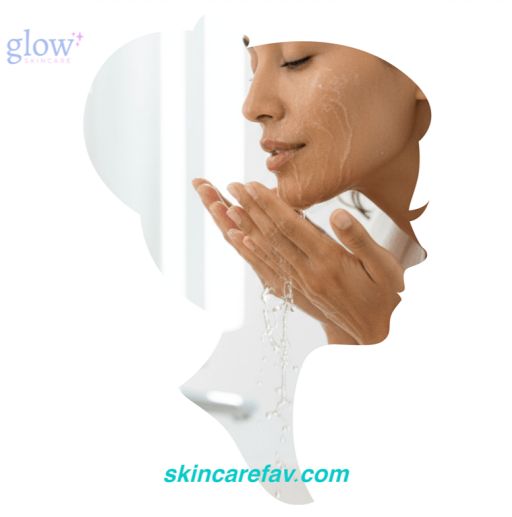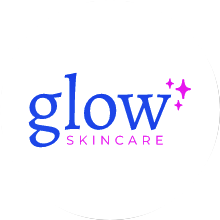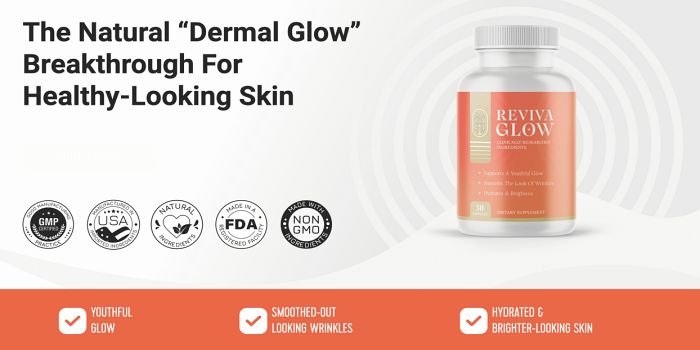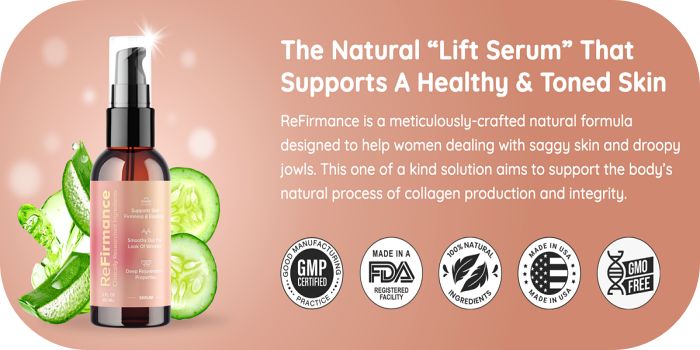Best Anti Aging Skincare Routine for Women Over 30
Turning 30 marks a powerful shift — in lifestyle, mindset and yes, your skin. The collagen that kept your complexion plump begins to decline and those faint expression lines start to settle in. But here’s the good news: with a consistent and smart anti-aging skincare routine, you can absolutely maintain youthful, glowing, firm skin. This isn’t about turning back time; it’s about preserving and enhancing what you already have — naturally.
Let’s dive into a dermatologist-approved, realistic and sustainable skincare routine designed for women over 30 that actually works.
Note: This Page was last updated on Wednesday 11th of February 2026

Why Skin Changes After 30
Your 20s are all about maintenance — hydration, sunscreen and basic cleansing. But after 30, your skin starts showing early signs of aging. Collagen and elastin production slow down, cell turnover decreases and the skin barrier becomes more sensitive.
Hormonal shifts, stress, lack of sleep and environmental exposure (hello, UV and pollution!) also accelerate the visible signs of aging. This is when fine lines, uneven texture and dullness become more noticeable.
The key to anti-aging skincare isn’t about adding every trending ingredient — it’s about creating balance and consistency with products that support repair, protection and renewal.
Morning Skincare Routine (AM Routine)
Your morning routine should prepare your skin to face the day — pollution, stress and UV rays included. Think protection, hydration and radiance.
Step 1: Gentle Cleanser
Start with a mild, sulfate-free cleanser to remove overnight buildup. Avoid harsh foaming agents; instead, look for hydrating ingredients like glycerin or hyaluronic acid. Don’t over-cleanse — stripping your natural oils leads to premature dryness and sensitivity.
Step 2: Antioxidant Serum (Vitamin C)
Vitamin C is your best friend in your 30s. It brightens, evens out tone and fights free radicals that accelerate aging. Look for: 10–20% L-Ascorbic Acid or stable derivatives like Sodium Ascorbyl Phosphate.
Step 3: Lightweight Moisturizer
Choose a moisturizer that strengthens your barrier. Hyaluronic acid, ceramides and peptides are powerhouse ingredients that lock in moisture and keep your skin supple.
Step 4: Broad-Spectrum Sunscreen (SPF 30+)
No anti-aging routine is complete without SPF. UV exposure is responsible for 80 % of visible aging signs — wrinkles, spots and sagging. Apply generously, even on cloudy days.
Evening Skincare Routine (PM Routine)
Nighttime is when your skin naturally regenerates. Your evening routine should focus on nourishment and repair.
Step 1: Double Cleanse
Use an oil-based cleanser first to melt away makeup and sunscreen, followed by a gentle water-based cleanser. This ensures a clean canvas without compromising hydration.
Step 2: Exfoliation (2–3 times a week)
Exfoliation encourages cell turnover and improves texture. Chemical exfoliants like glycolic acid or lactic acid are gentler than scrubs. Avoid daily use — over-exfoliation can cause irritation and barrier damage.
Step 3: Retinol or Bakuchiol Serum
Retinol remains the gold standard for anti-aging. It boosts collagen, fades dark spots and smooths fine lines. For sensitive skin, bakuchiol offers similar benefits without irritation. Start slow (twice weekly) and always follow with a rich moisturizer.
Step 4: Nourishing Night Cream
Lock in moisture with a peptide-rich, ceramide-based night cream. This step supports overnight recovery and prevents transepidermal water loss.
Weekly Treatments to Boost Results
Even with a solid daily routine, your skin sometimes needs a little extra love. Add these treatments once or twice a week for visible improvement.
1. Hydrating Sheet Mask
Perfect for dry or stressed skin. Look for ingredients like hyaluronic acid, niacinamide and aloe vera.
2. Clay Mask for Detox
If you have oily or combination skin, a clay mask (kaolin or bentonite) removes excess sebum and unclogs pores.
3. Facial Massage or Gua Sha
Boost circulation, reduce puffiness and help your products absorb better. A few minutes a day can make a big difference in tone and elasticity.
Anti-Aging Ingredients That Truly Work
The market is full of “miracle” products, but science consistently supports a handful of ingredients that truly stand out. Combining Vitamin C (AM) and Retinol (PM) maximizes results — but never use them together in one routine.
|
Ingredient |
Benefit |
| Retinol | Stimulates collagen, reduces wrinkles |
| Vitamin C | Brightens, evens tone, protects from UV damage |
| Hyaluronic Acid | Deep hydration, plumping effect |
| Niacinamide | Refines pores, strengthens barrier |
| Peptides | Firmness and elasticity |
| Ceramides | Moisture retention, barrier repair |
| Bakuchiol | Plant-based retinol alternative |
How Lifestyle Impacts Skin Aging
Skincare doesn’t stop at your vanity. What you eat, how you sleep and your daily habits have a direct impact on your skin’s health.
- Hydration: Drink at least 2 liters of water daily. Dehydration makes wrinkles appear deeper.
- Nutrition: Prioritize antioxidant-rich foods — berries, leafy greens, avocado, nuts and fish.
- Sleep: Aim for 7–8 hours each night; your skin regenerates most efficiently during sleep.
- Stress: Chronic stress raises cortisol levels, which weakens the skin barrier.
- Exercise: Increases circulation and oxygen delivery, giving your skin a natural glow.
Skincare Routine by Skin Type
Even within anti-aging care, one size doesn’t fit all. Tailor your routine for your specific skin type.
- Dry Skin
Use rich, emollient creams and hydrating toners with hyaluronic acid and ceramides. Avoid alcohol-based toners. - Oily Skin
Opt for gel-based moisturizers and oil-free formulas. Niacinamide and salicylic acid help control excess sebum. - Combination Skin
Balance both needs — lightweight hydration on the T-zone and richer cream on dry areas. - Sensitive Skin
Stick with fragrance-free, hypoallergenic products. Introduce actives slowly and patch test before full application.
Recommended Product Types to Enhance Your Anti-Aging Routine
Building the perfect anti-aging skincare routine isn’t only about consistency — it’s also about using the right types of products for your skin’s unique needs. Below are some product recommendations you can explore to support healthy, youthful skin at every step.
1. Gentle Cleanser
Start with a mild, non-stripping cleanser that removes impurities without compromising your skin barrier. Look for formulas containing hydrating ingredients like glycerin or ceramides to maintain moisture balance.
→ Explore gentle cleansers that respect your skin’s natural barrier.
2. Hydrating Toner
After cleansing, a hydrating toner helps prepare your skin to absorb serums more effectively. Ingredients like hyaluronic acid, aloe vera and rose water work great for soothing and hydration.
→ Discover balancing toners enriched with natural hydrators.
3. Potent Serum
Serums deliver concentrated ingredients directly where your skin needs them most. For anti-aging, look for vitamin C, retinol, niacinamide or peptides — they help reduce fine lines and improve firmness.
→ See antioxidant-rich serums that target visible aging signs.
4. Moisturizer
Seal in hydration with a moisturizer suited to your skin type.
Dry skin: Choose a richer cream with shea butter or squalane.
Oily skin: Go for a lightweight, gel-based formula with niacinamide.
→ Find moisturizers that keep your skin plump and balanced.
5. Eye Cream
The delicate skin around your eyes often shows aging first. Use an eye cream with peptides, caffeine or hyaluronic acid to firm, depuff and brighten.
→ Browse eye creams designed to rejuvenate tired eyes.
6. Sunscreen
No anti-aging routine is complete without SPF. Daily protection prevents premature wrinkles, dark spots and collagen loss. Choose a broad-spectrum SPF 30+, ideally mineral-based for sensitive skin.
→ Protect your skin daily with a lightweight, non-greasy sunscreen.
Consistency matters more than perfection. Once you find the right set of products that suit your skin, stay consistent for at least 6–8 weeks to see visible results. Whether you’re just starting your anti-aging journey or upgrading your current routine, using the right products makes all the difference.
→ Discover more guides and product recommendations at SkincareFav.com
FAQ – Common Anti-Aging Questions
Q1: When should I start using anti-aging products?
Ideally, in your late 20s or early 30s. Prevention is easier than correction.
Q2: Can I use Retinol and Vitamin C together?
Use Vitamin C in the morning and Retinol at night to avoid irritation.
Q3: How long until I see visible results?
With consistency, expect noticeable improvement in 6–8 weeks.
Q4: Is natural skincare effective for aging skin?
Yes — when it includes active ingredients like bakuchiol, peptides or Vitamin C. “Natural” doesn’t always mean “weak.”
Q5: Do expensive products work better?
Not necessarily. Formulation matters more than brand price. Focus on ingredients and concentration.
Q6: Can sunscreen really prevent wrinkles?
Absolutely. Daily SPF is the single most effective anti-aging product you can use — every dermatologist agrees.
Q7: Should I skip moisturizer if I have oily skin?
No — skipping moisture triggers even more oil production. Choose non-comedogenic, lightweight options.
Final Thoughts
Anti-aging skincare isn’t about fighting time — it’s about working with your skin through every stage. When you nourish it, protect it and give it what it needs, your skin reflects that care.
Remember, consistency beats perfection. You don’t need a 12-step routine — just a mindful one tailored to your needs.
Start today…
Love your skin at every age and Let your glow tell your story!





